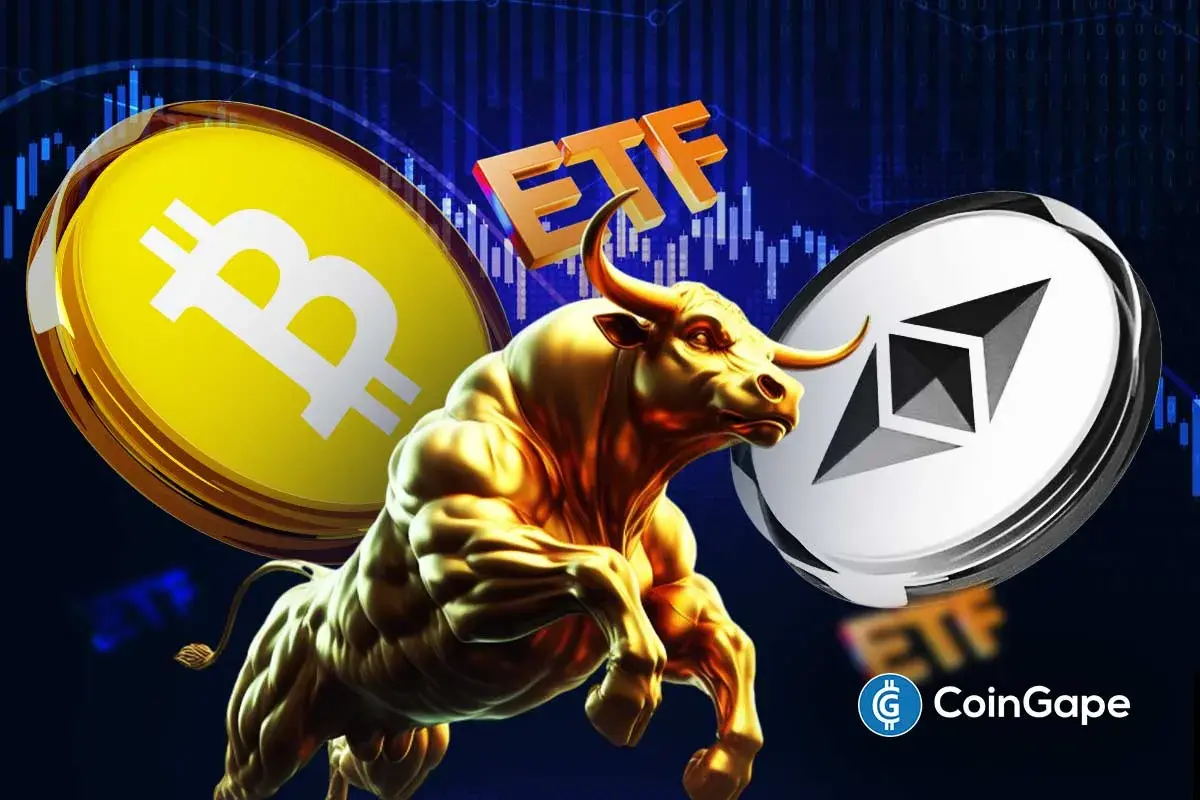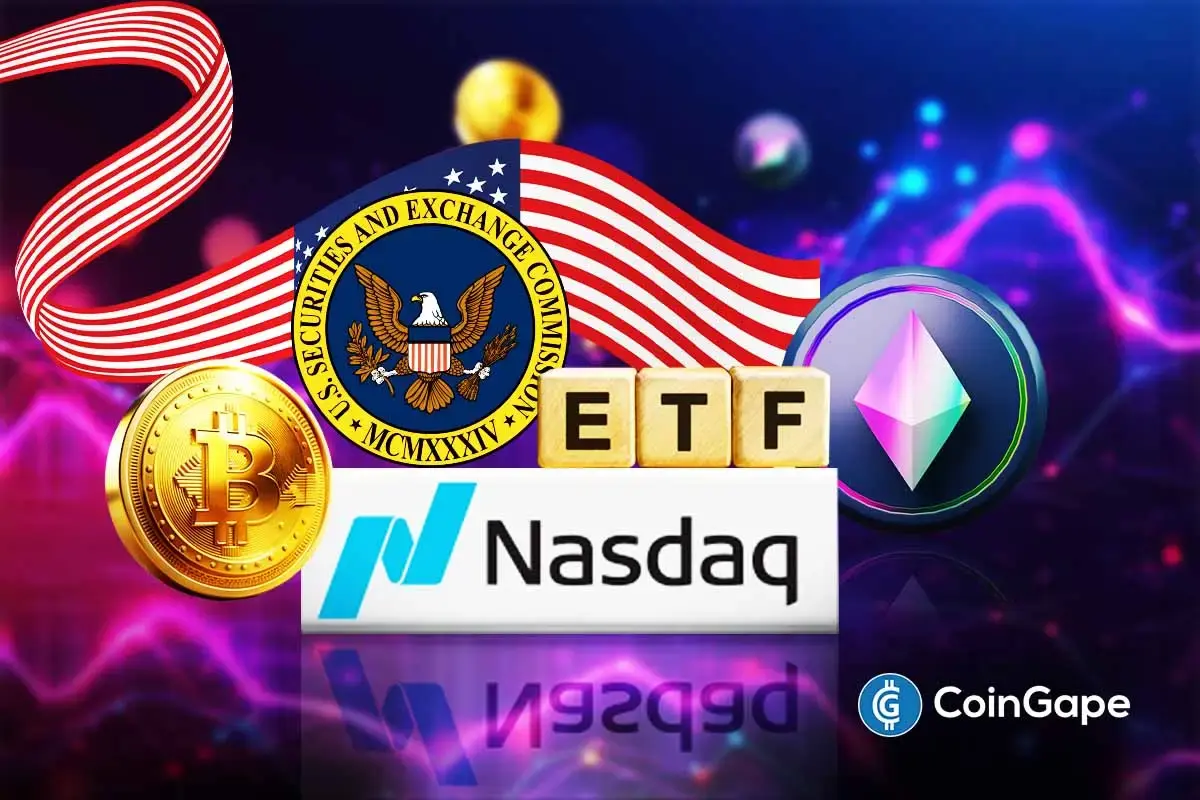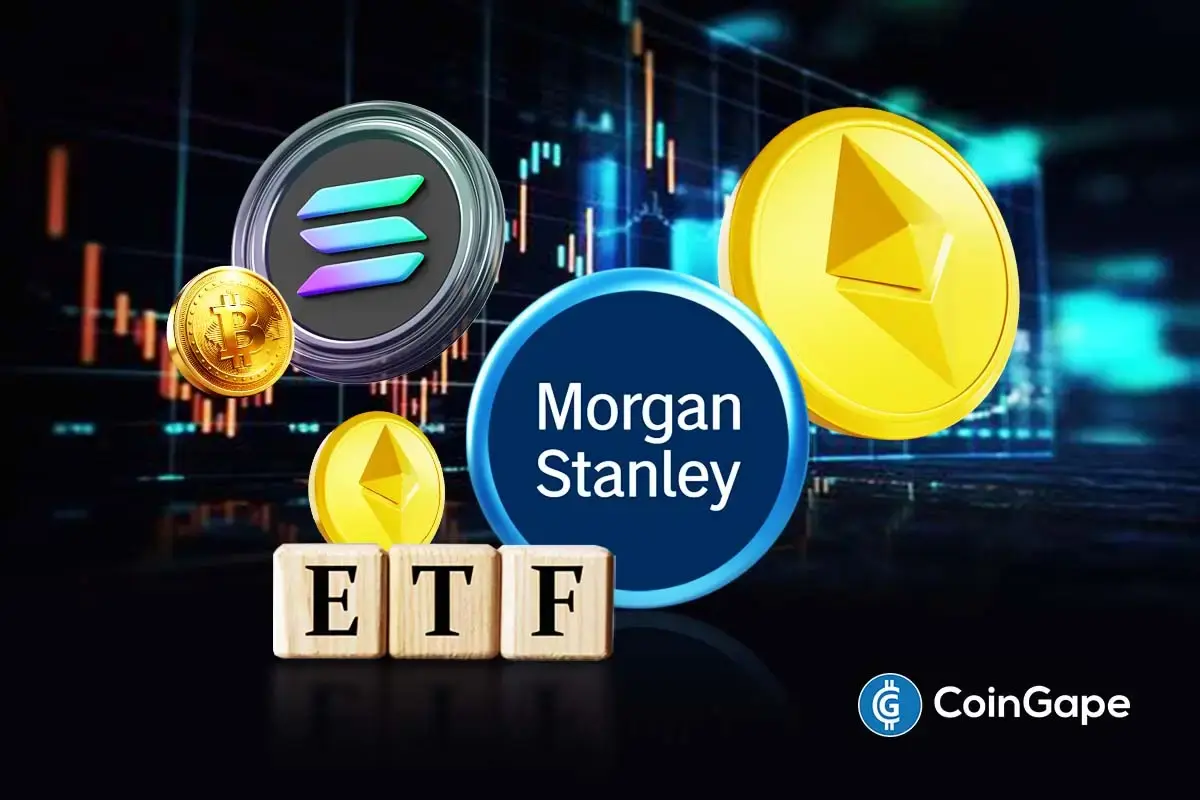Coinbase CLO: Ethereum ETF Approval Confirms Ethereum Commodity Status

Highlights
- The SEC approved has approved eight spot Ethereum ETF applications.
- Coinbase CLO Paul Grewal stated the approval confirms Ethereum's commodity status.
- Approved funds include Grayscale, Bitwise, iShares, VanEck, ARK/21 Shares, Invesco Galaxy, Fidelity, and Franklin Ethereum ETFs.
The U.S. Securities and Exchange Commission (SEC) approved eight applications for spot Ethereum ETFs on Thursday, signaling Ethereum trading on Wall Street. Coinbase Chief Legal Officer (CLO) Paul Grewal affirmed that the SEC’s decision confirms Ethereum’s status as a commodity.
Coinbase CLO: SEC Approval of Ethereum ETF Validates ETH as Commodity
Paul Grewal expressed his views online, emphasizing the significance of the approval. He stated that Ethereum is now effectively recognized as a commodity, a belief long held by the crypto community. Grewal’s sentiments were echoed by Sigel, who highlighted that Ethereum’s decentralized nature classifies it as a commodity. This recognition is supported by various regulatory bodies, including the Commodity Futures Trading Commission (CFTC) and federal court rulings. The SEC’s approval of Ethereum ETFs further solidifies this stance.
Grewal and Sigel both pointed to historical evidence and regulatory actions that have treated Ethereum as a commodity. They mentioned the CFTC’s regulation of ETH futures and public statements by commission officials. This consistent treatment across different circumstances has now culminated in the approval of spot Ethereum ETFs, reinforcing Ethereum’s commodity status.
SEC Approval Boosts Ethereum Institutional Investment
The approved funds include the converted Grayscale Ethereum Trust, Bitwise Ethereum ETF, iShares Ethereum Trust, VanEck Ethereum Trust, ARK/21 Shares Ethereum ETF, Invesco Galaxy Ethereum ETF, Fidelity Ethereum Fund, and Franklin Ethereum ETF. While the approval is a significant milestone, trading will begin after some time. Bloomberg ETF expert James Seyffart suggested that it could take a few weeks for the fund managers’ S-1 documents to be approved, enabling trading to commence.
The approval of these funds marks a critical development for Ethereum, paving the way for greater institutional investment. However, investors must wait for the final approval of S-1 documents before trading begins. This process is crucial to ensure compliance with regulatory standards and the smooth launch of these ETFs.
The SEC’s decision to approve spot Ethereum ETFs indicates that Ethereum is not considered a security. If it were labeled a security, a different approval process would be required. This approval is a significant victory for crypto advocates, highlighting Ethereum’s essential role in the industry. The Ethereum network supports many prominent projects and services, making this recognition crucial for its continued growth.
Interestingly, several ETH ETF issuers amended their applications this week, removing language about staking customer ETH. Since Ethereum transitioned to a proof-of-stake system in September 2022, ETH holders have been able to earn rewards by staking their funds. The SEC has previously viewed staking services offered by financial intermediaries as unregistered securities schemes. By removing references to staking, ETF issuers aim to avoid regulatory hurdles and expedite the approval process.
Also Read: Binance LUNC Burn Spikes Over 59 Billion After Latest Terra Classic Tokens Burn
Play 10,000+ Casino Games at BC Game with Ease
- Instant Deposits And Withdrawals
- Crypto Casino And Sports Betting
- Exclusive Bonuses And Rewards

- Cardone Capital Takes Real Estate On-Chain With $5B Tokenization Plan
- Senator Elizabeth Warren Targets Trump-Affiliated World Liberty Financial Over Bank Charter Bid
- JPMorgan Projects Bullish Crypto Market in H2 Following CLARITY Act Approval
- Hong Kong Moves Closer to Crypto Tax Cuts Amid Stablecoin Regulatory Framework
- Popular Analyst Willy Woo Predicts Major Bitcoin Price Crash, Bear Market Bottom Timeline
- Top 2 Price Predictions Ethereum and Solana Ahead of March 1 Clarity Act Stablecoin Deadline
- Pi Network Price Prediction Ahead of Protocol Upgrades Deadline on March 1
- XRP Price Outlook As Jane Street Lawsuit Sparks Shift in Morning Sell-Off Trend
- Dogecoin, Cardano, and Chainlink Price Prediction As Crypto Market Rebounds
- Will Solana Price Rally to $100 If Bitcoin Reclaims $72K?
- XRP Price Eye $2 Rebound as On-Chain Data Signals Massive Whale Accumulation

 Buy $GGs
Buy $GGs

















